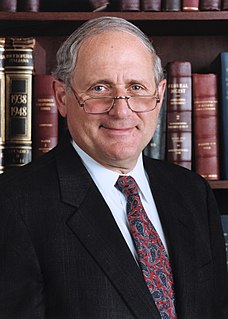A Quote by Carl von Clausewitz
Lastly, the great uncertainty of all data in War is a peculiar difficulty, because all action must, to a certain extent, be planned in a mere twilight, which in addition not unfrequently — like the effect of a fog or moonshine — gives to things exaggerated dimensions and an unnatural appearance.
Related Quotes
War is the realm of uncertainty; three-quarters of the factors on which action in war is based are wrapped in a fog of greater or lesser uncertainty. ... war is the realm of chance. No other human activity gives it greater scope; no other has such incessant and varied dealings with this intruder. Chance makes everything more uncertain and interferes with the whole course of events.
The general unreliability of all information presents a special problem in war: all action takes place, so to speak, in the twilight, which, like fog or moonlight, often tends to make things seem grotesque and larger than they really are. Whatever is hidden from full view in this feeble light has to be guessed at by talent, or simply left to chance. So once again for the lack of objective knowledge, one has to trust to talent or to luck.
Thus, if there exists a law which sanctions slavery or monopoly, oppression or robbery, in any form whatever, it must not even be mentioned. For how can it be mentioned without damaging the respect which it inspires? Still further, morality and political economy must be taught from the point of view of this law; from the supposition that it must be a just law merely because it is a law. Another effect of this tragic perversion of the law is that it gives an exaggerated importance to political passions and conflicts, and to politics in general.
I try to follow certain rules. Nothing in Élysée Palace should become habitual, because routine lends one a deceptive feeling of security. You begin not noticing certain things and lose your focus on what's important. Uncertainty and change keep you attentive. This place and, to a certain extent, my office, help me avoid developing habits.
In practice, some come to see easily, some with difficulty. But whatever the case, never mind. Difficult or easy, the Buddha said not to be heedless. Just that--don't be heedless. Why? Because life is not certain. Wherever we start to think that things are certain, uncertainty is lurking right there. Heedlessness is just holding things as certain. It is grasping at certainty where there is no certainty and looking for truth in things that are not true. Be careful! They are likely to bite you sometime in the future!
In like manner the effect of every action is measured by the depth of the sentiment from which it proceeds. The great man knew not that he was great. It took a century or two for that fact to appear. What he did, he did, he did because he must; it was the most natural thing in the world, and grew out of the circumstances of the moment.
You can be good for the mere sake of goodness; you cannot be bad for the mere sake of badness. You can do a kind action when you are not feeling kind and when it gives you no pleasure, simply because kindness is right; but no one ever did a cruel action simply because cruelty is wrong - only because cruelty is pleasant or useful to him, In other words, badness cannot succeed even in being bad in the same way in which goodness is good. Goodness is, so to speak, itself: badness is only spoiled goodness. And there must be something good first before it can be spoiled.
The truest definition of evil is that which represents it as something contrary to nature; evil is evil because it is unnatural; a vine which should bear olive-berries, an eye to which blue seems yellow, would be diseased; an unnatural mother, an unnatural son, an unnatural act, are the strongest terms of condemnation.
This writer, who is horribly perspicacious and vigorous, demonstrates the certainty of a great European war, and regards it with the peculiar satisfaction excited by such things in a certain order of mind. His phrases about "dire calamity" and so on mean nothing; the whole tenor of his writing proves that he represents, and consciously, one of the forces which go to bring war about; his part in the business is a fluent irresponsibility, which casts scorn on all who reluct at the "inevitable." Persistent prophecy is a familiar way of assuring the event.
Must love be ever treated with profaneness as a mere illusion? or with coarseness as a mere impulse? or with fear as a mere disease? or with shame as a mere weakness? or with levity as a mere accident? whereas it is a great mystery and a great necessity, lying at the foundation of human existence, morality, and happiness,--mysterious, universal, inevitable as death.
































